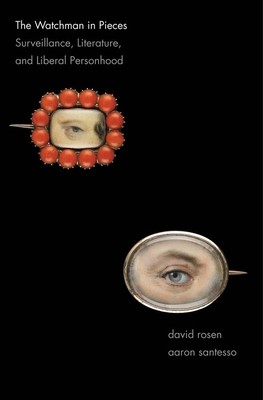
- We will send in 10–14 business days.
- Author: David Rosen
- Publisher: Yale University Press
- ISBN-10: 0300155417
- ISBN-13: 9780300155419
- Format: 16.5 x 23.9 x 2.8 cm, hardcover
- Language: English
- SAVE -10% with code: EXTRA
Reviews
Description
Spanning nearly 500 years of cultural and social history, this book examines the ways that literature and surveillance have developed together, as kindred modern practices. As ideas about personhood--what constitutes a self--have changed over time, so too have ideas about how to represent, shape, or invade the self. The authors show that, since the Renaissance, changes in observation strategies have driven innovations in literature; literature, in turn, has provided a laboratory and forum for the way we think about surveillance and privacy. Ultimately, they contend that the habits of mind cultivated by literature make rational and self-aware participation in contemporary surveillance environments possible. In a society increasingly dominated by interlocking surveillance systems, these habits of mind are consequently necessary for fully realized liberal citizenship.
EXTRA 10 % discount with code: EXTRA
The promotion ends in 12d.04:29:36
The discount code is valid when purchasing from 10 €. Discounts do not stack.
- Author: David Rosen
- Publisher: Yale University Press
- ISBN-10: 0300155417
- ISBN-13: 9780300155419
- Format: 16.5 x 23.9 x 2.8 cm, hardcover
- Language: English English
Spanning nearly 500 years of cultural and social history, this book examines the ways that literature and surveillance have developed together, as kindred modern practices. As ideas about personhood--what constitutes a self--have changed over time, so too have ideas about how to represent, shape, or invade the self. The authors show that, since the Renaissance, changes in observation strategies have driven innovations in literature; literature, in turn, has provided a laboratory and forum for the way we think about surveillance and privacy. Ultimately, they contend that the habits of mind cultivated by literature make rational and self-aware participation in contemporary surveillance environments possible. In a society increasingly dominated by interlocking surveillance systems, these habits of mind are consequently necessary for fully realized liberal citizenship.


Reviews